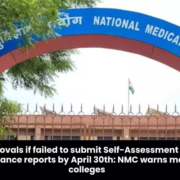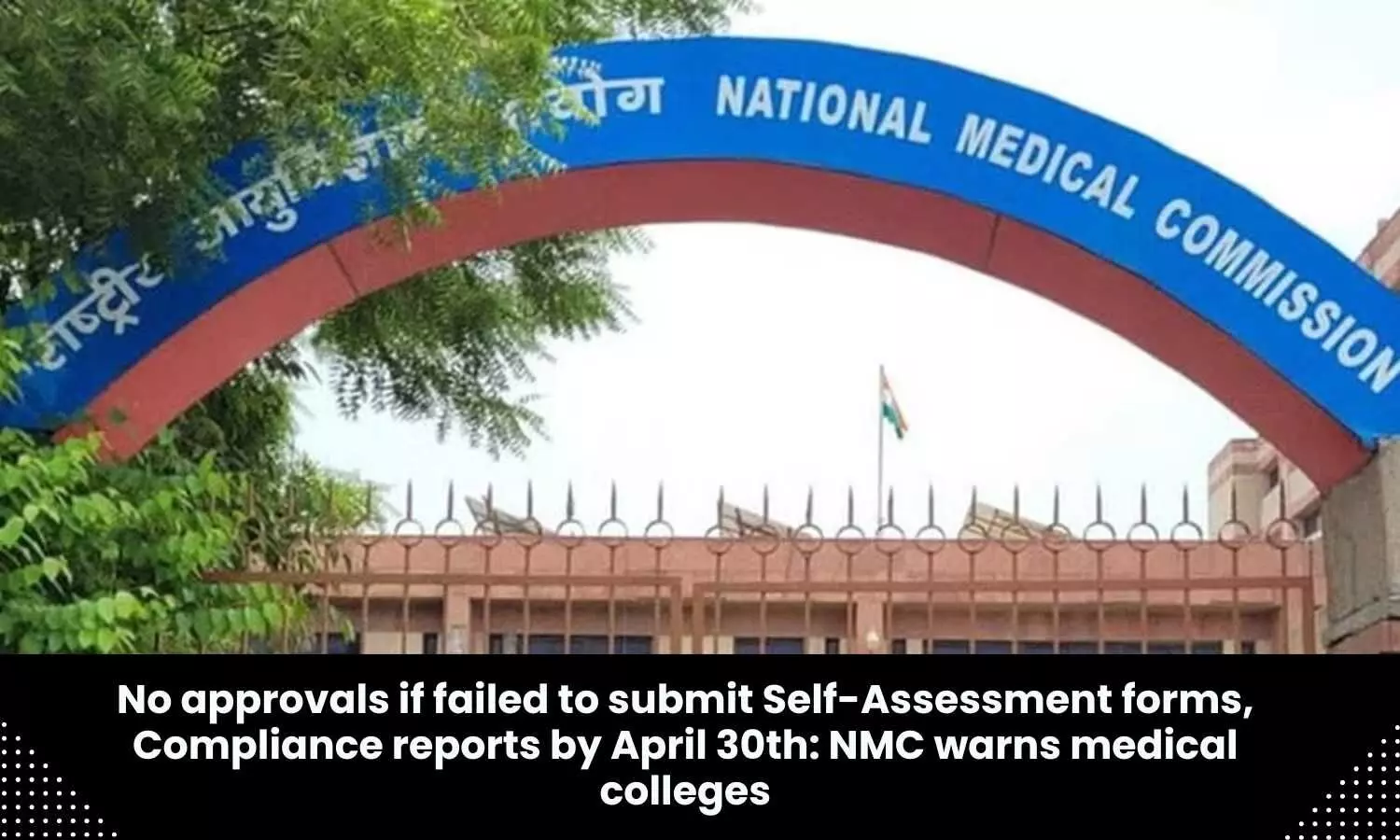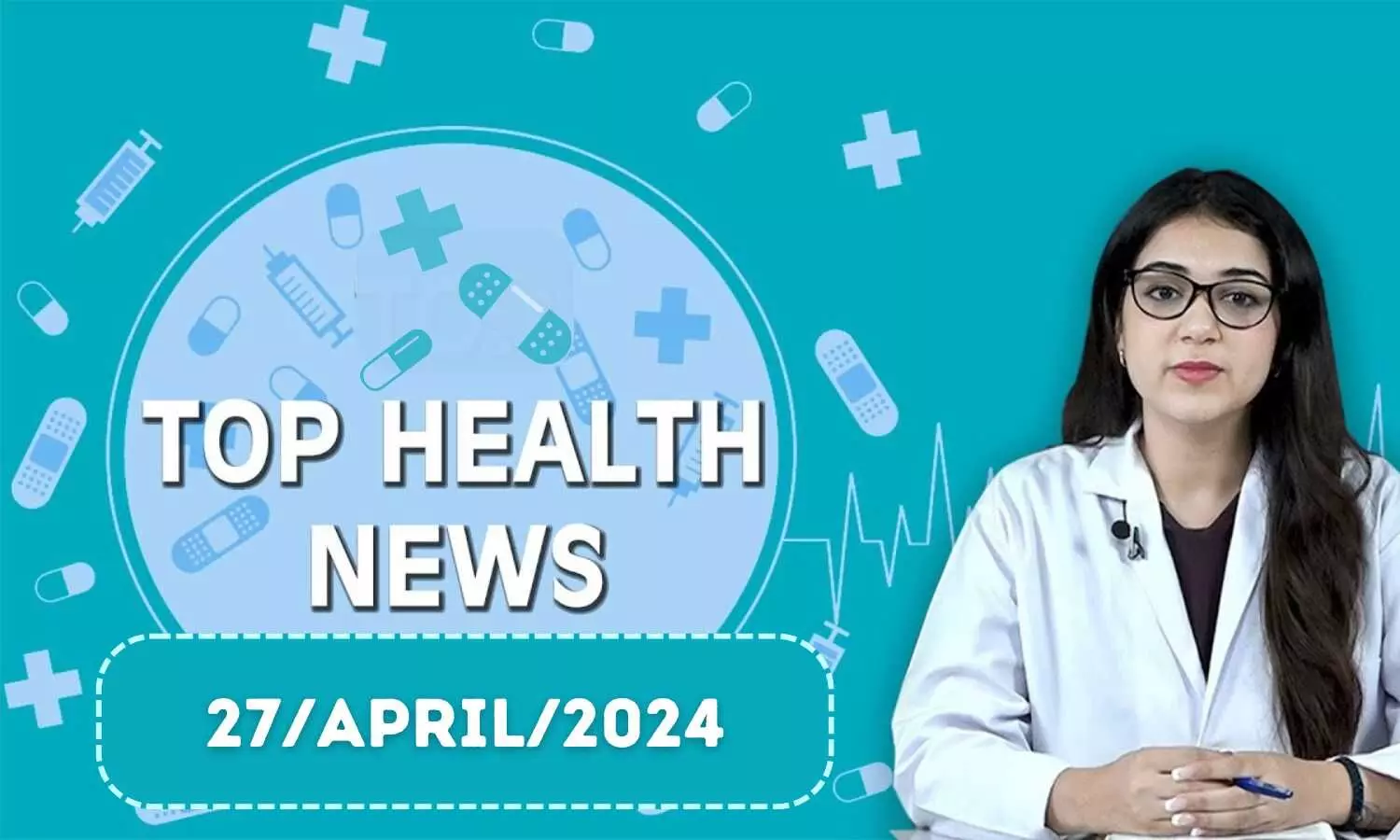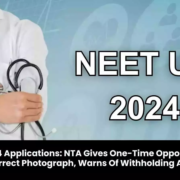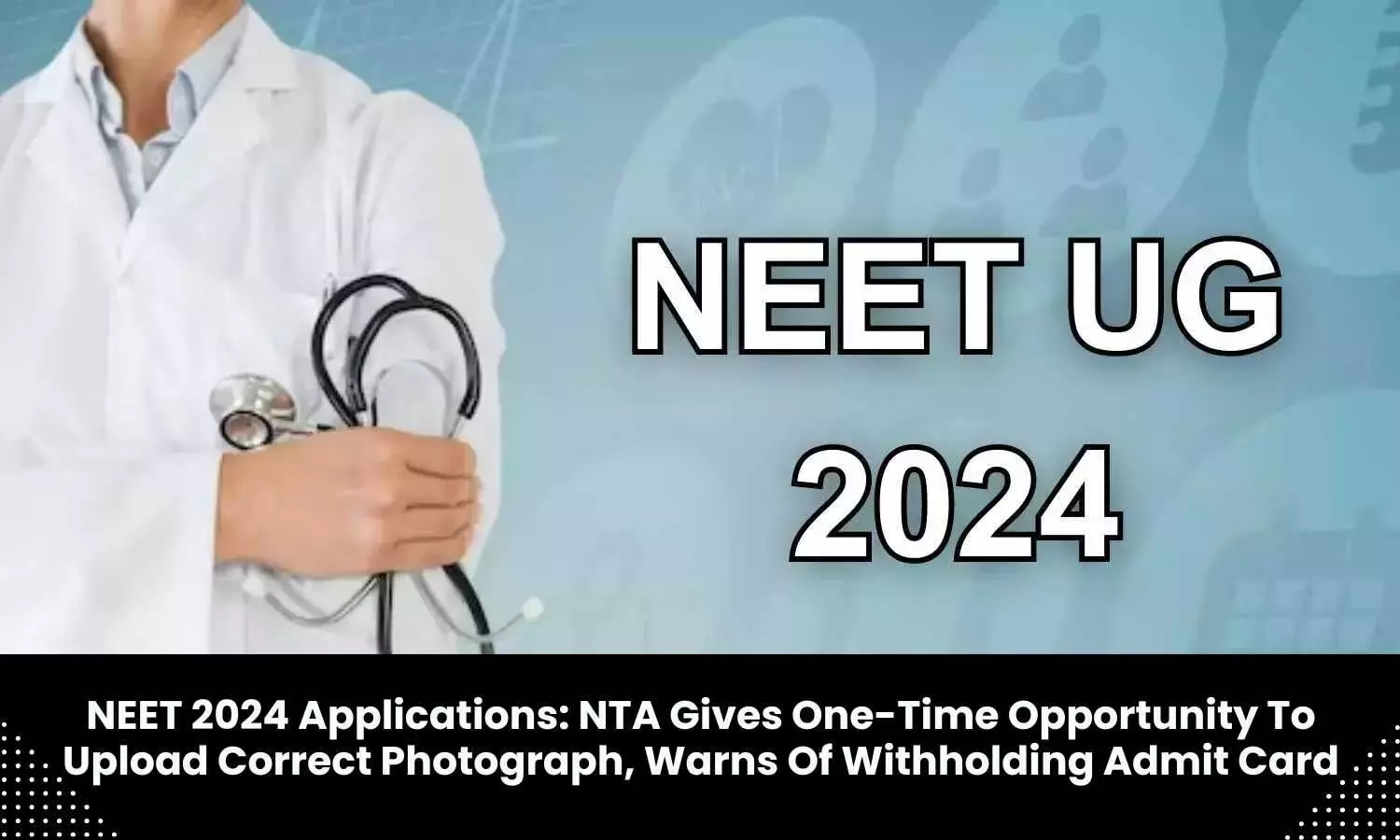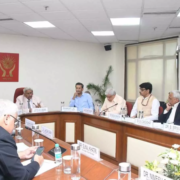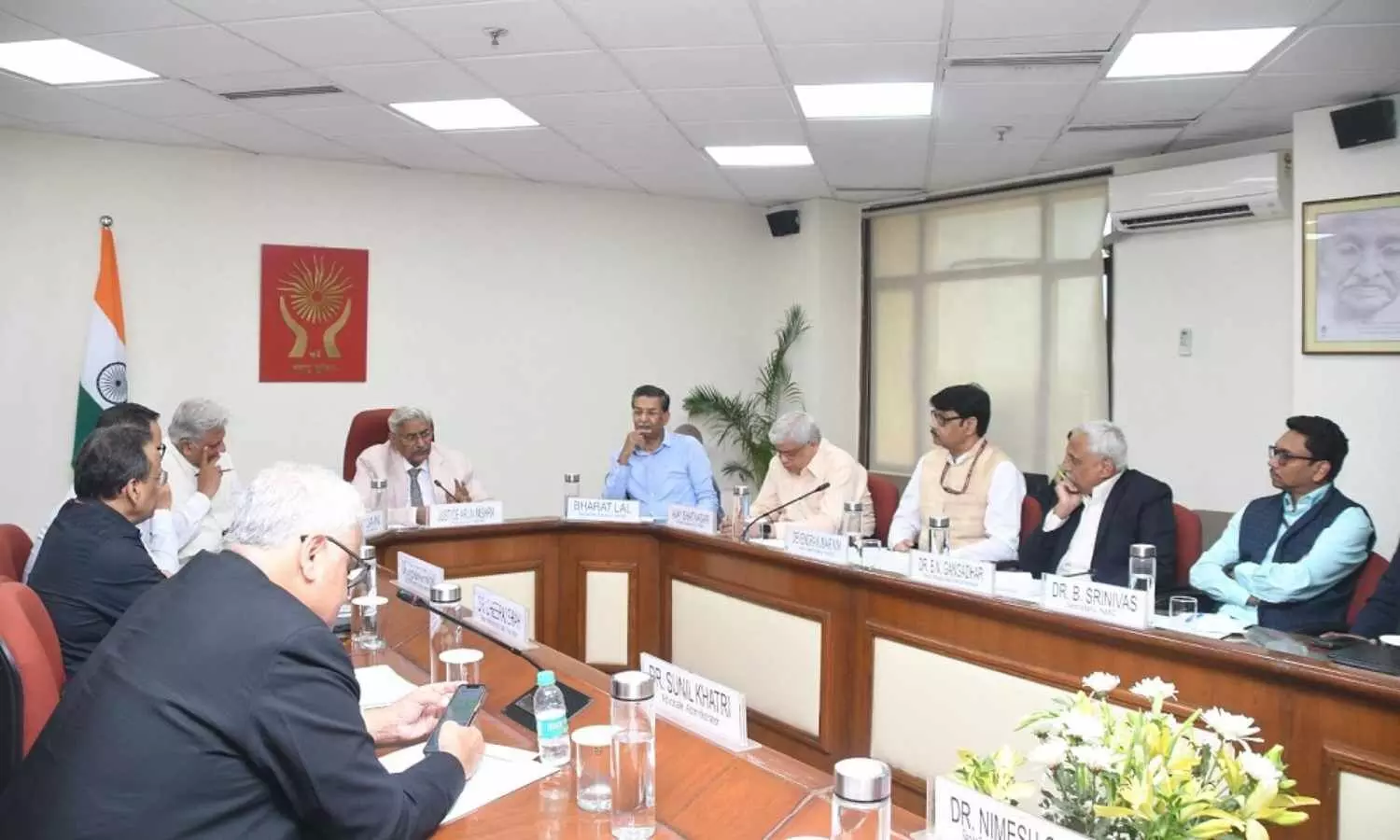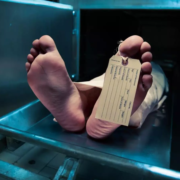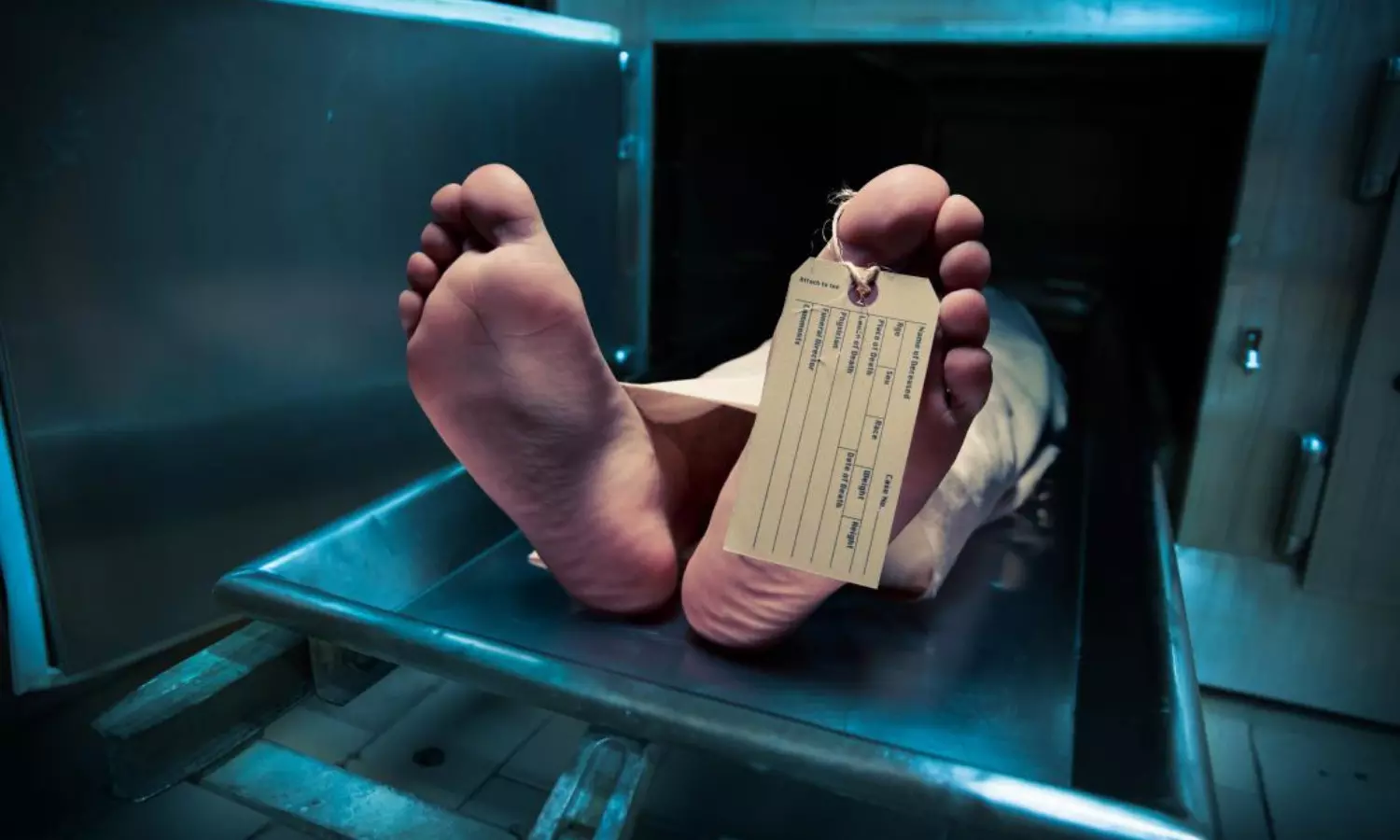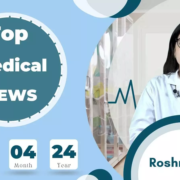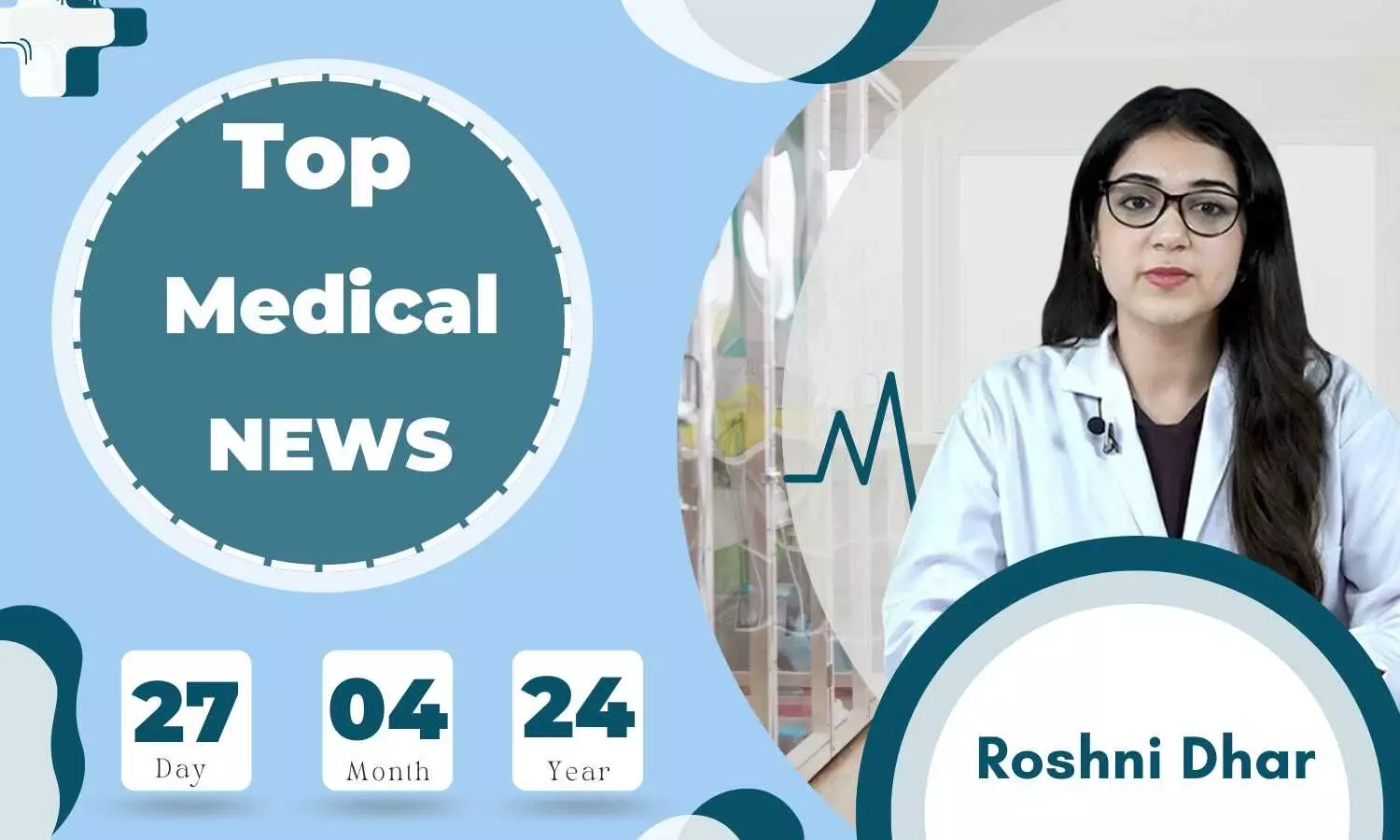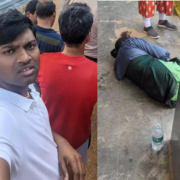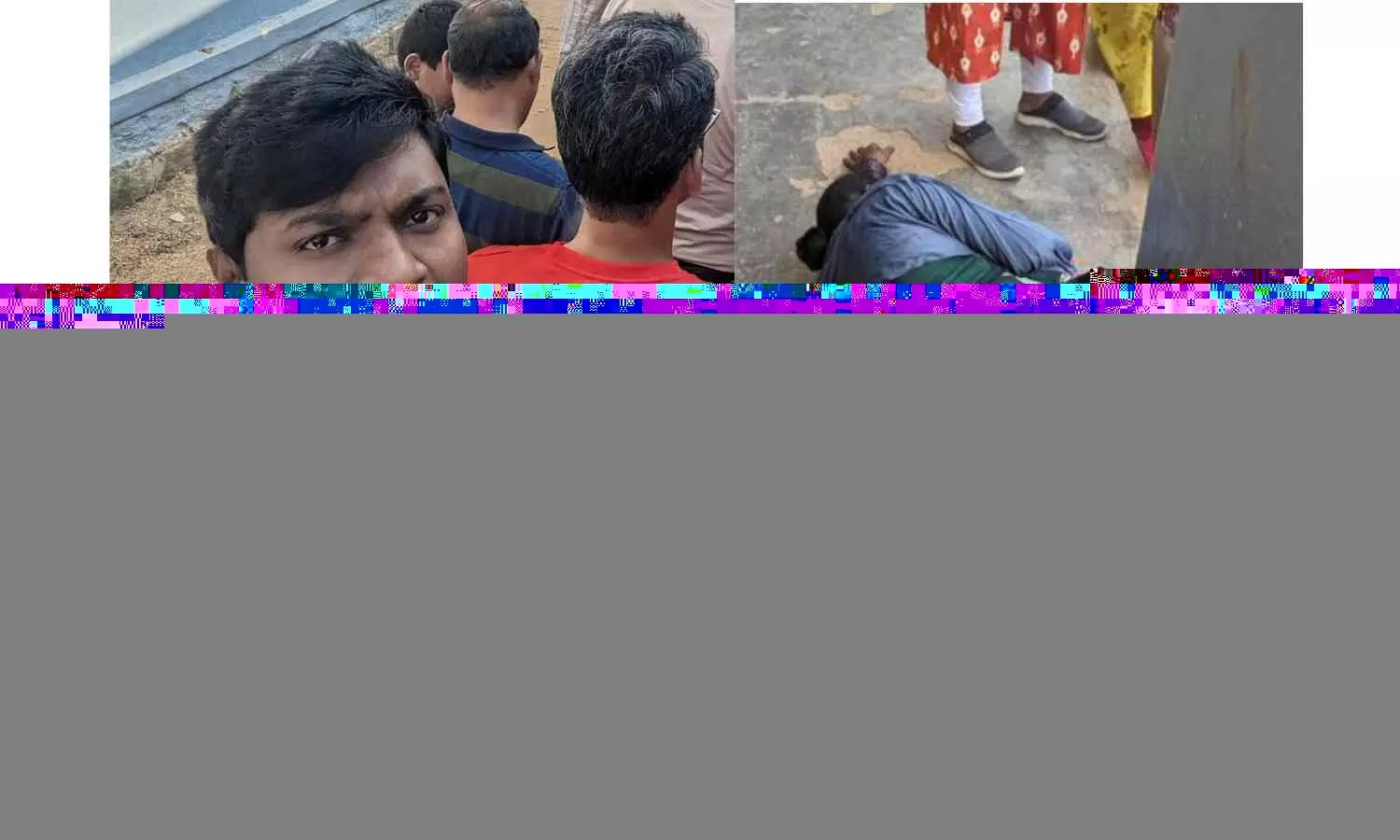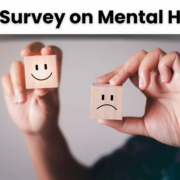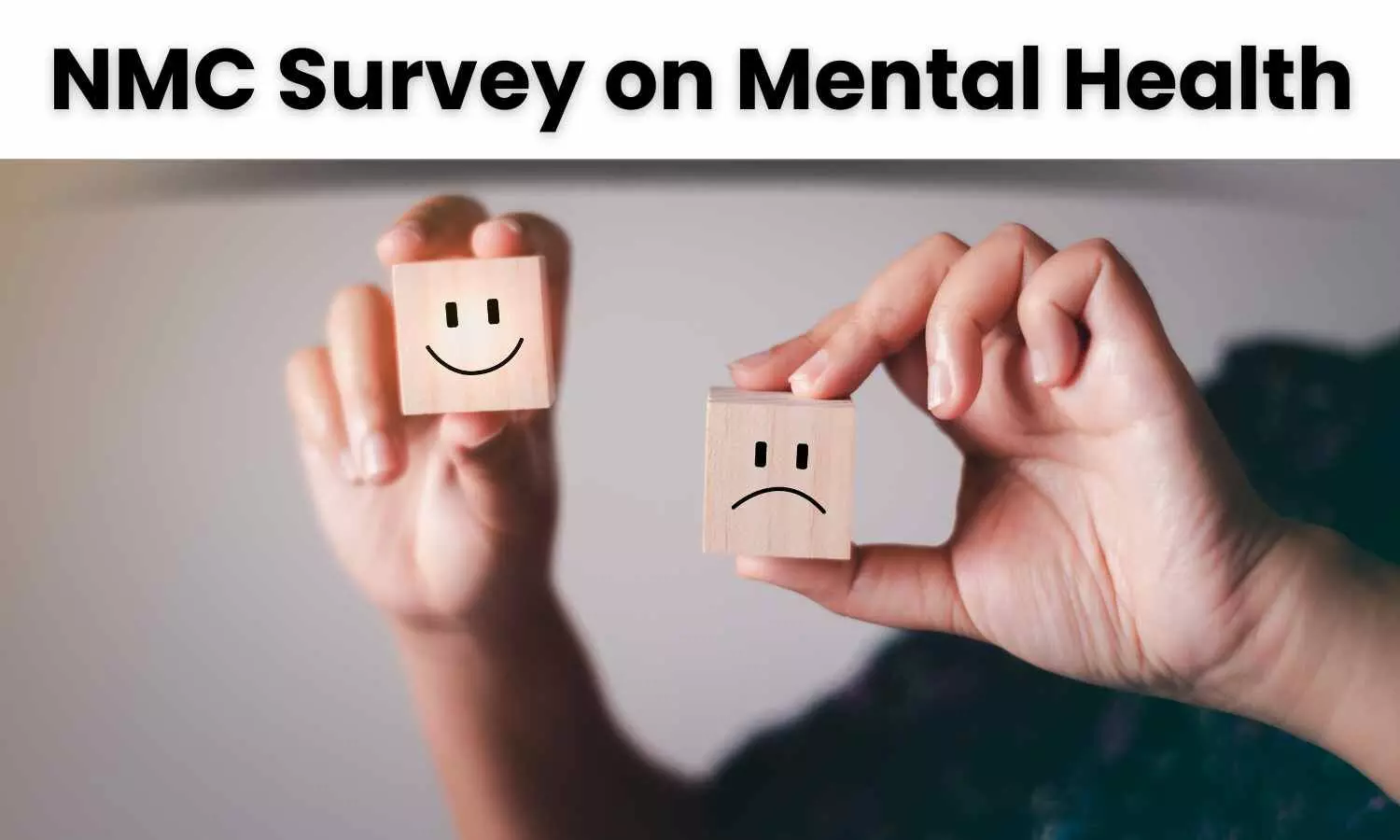
New Delhi: The National Task Force, constituted by the National Medical Commission (NMC) is conducting an online survey on the mental health and well-being of medical students.
Through a recent notice, the Apex Medical Commission has shared a link to the Google form in this regard and asked all medical students and faculties of medical colleges to submit their responses by 3rd May 2024.
“Anti Ragging cell in NMC has constituted a National Task Force on Mental Health and Wellbeing of Medical Students. Task Force has decided to conduct an online survey of medical students as well as the faculty in medical colleges. A google form for this purpose has been prepared which may be accessed from the link (mentioned in the notice),” NMC stated in the public notice.
“All the medical students and faculties of the medical college are requested to kindly submit their responses by 3 rd May 2024,” the Commission added.
NMC has assured the participants that their identities will be kept confidential and will only be used by the Task Force for the purpose of analysis and recommendations.
“Identity of the participants will be kept confidential and will not be shared with anyone. It will be used by the Task Force only for the purpose of analysis and recommendations in its report,” the NMC notice said.
Similarly, the Google form also clarified that the data collected from this survey will be used for research and analysis and individual responses will not be shared publicly. Regarding Data Security, the form mentioned that even though appropriate measures have been taken to ensure the security of the data, no method of transmission over the internet or electronic storage is 100% secure.
The participants will have to submit personal data including their name, age, gender, email ID, medical college name, etc. As per the survey details, the participants can be either UG/PG students or medical college faculty or administrator. They will also have to choose whether they would like to talk on call after submitting the responses for the purpose of giving suggestions or any other discussion. If yes, the participants will also have to provide their mobile number.
Details to be Filled by MBBS Students:
MBBS Students will have to submit details such as their year of study, they will have to submit if their medical college is located in their home State, their type of residence (parent’s place/relatives/hostel/own apartment or shared accommodation etc). Details about their total family income per annum, their family structure, number of siblings, the place where they completed majority of their school education (rural/urban/semi-urban), medium of language in school are also required.
MBBS students have also been asked to rate the overall supportiveness of their family environment, academic pressure from family, financial strain in the family, rate the conflict or lack of harmony, overall academic workload, etc. They will also have to submit details regarding the total hours spent on study and attending classes (outside personal study), details about how often they feel overwhelmed/burdened by academic demands.
They will have to give their opinions on subjects like exams adequately assessing their knowledge and skill, fear of failure negatively impacting their academic performance, the pressure on students to achieve top grades, balancing academic workload with personal life and well-being. Further, they will have to inform if factors like- volumes of coursework, difficulty of study material, frequency of exams contribute to their stress. They will also have to submit if fear of failure leads to procrastination/excessive perfectionism/skipping classes/using unhealthy study aids such as caffeine or stimulants/cheating or academic dishonesty/thoughts of self-harm/substance use/considering leaving the medical course etc.
Apart from this, the UG medical students have also been asked to rate the overall condition of hostel facilities, provide details if the hostel rooms have adequate privacy and personal space, rate the quality/variety of food served in mess/cafeteria, rate their experience with the availability of resources in the college library. They have also been asked to submit details regarding ragging in the medical college, inform if adequate measures have been taken to prevent and address ragging, etc.
The students will also have to provide details about the stress level experienced by them due to tuition/living costs etc, details of educational loan and the pressure of repayment, details of number of family members financially dependent on them, their opinion on seat leaving bond, their thoughts about leaving the MBBS course etc.
Details regarding relationship and social support have also been sought and the students have been asked to provide details if they have any difficulties in romantic/family/friends/roommates/classmates relationships, rate the emotional support received from family and friends. The students have been also asked if they feel lonely or isolated, if they find it difficult to make friends or or maintain social connections at medical college, if they have anyone to discuss personal difficulties, they have been told to submit details of when they feel most socially isolated, and they have also been asked to give their suggestions to reduce feelings of social isolation among medical students.
NMC has also sought details of the mental health history and stigma of UG medical students. The students have been asked to inform if they were ever diagnosed with mental health conditions such as depression, anxiety, bipolar disorder etc., if they ever experienced thoughts of self-harm or suicide, their opinion regarding seeking help from mental health professionals, etc. They are asked the support they receive from friends, family and faculty/mentors, and how comfortable seeking support from parents/family/friends/peers/factulty/mentors, the students have been asked if their medical college has a formal mentor-mentee programme, effectiveness of the mentor-mentee relationship, etc.
The students have also been asked to describe an instance when they felt particularly stressed or overwhelmed as a medical college student, and their opinion how their college could support them best.
Details Sought from PG Medical Students:
PG medical students have been told to submit details of their department, year of study, marital status, total family income etc. They have been told to rate their experience with the overall facilities provided by the college, cleanliness and variety of food items available in the cafeteria, opinion with the overall facilities available in the hostels, arrangements for students’ families to stay on the campus at the time of their visit, mechanism of interaction between student and hostel management, kind of interaction existing between student body and hostel management, etc.
They have been asked to submit their opinion on if the hostel environment affects their academic performance, if they want to suggest any change in the hostel management policy, if they feel stressed over PG seat leaving bond, if they feel stressed about rural service bond, if faculty/ college come to the college regularly and engage in teaching, with whom the students in the hostel encounter most problems frequently, if students in their institute face frequent problems over clinical or academic workload/thesis etc.
The PG students have been asked to describe the current academic workload, if they get offs as per regulations, if they experience stress due to academic demands, support received from guide/teacher, they have been asked to give opinion on additional support from colleagues or faculty to improve academic experience. They have been also questioned if they were ever asked unreasonable favours in exchange for passing exams, how they cope with academic stress, if they share academic or departmental challenges with their family, if they are concerned over the reaction by their family members with the problems faced by them.
Questions regarding peer relationships include, if relationship with peers contribute to their stress levels, if they need support from the authorities to resolve interpersonal relationship issues. The PG students have been asked to rate how the experiences of ragging or bullying by senior students affected them, their awareness of the anti-ragging measures, they have also been asked to give their opinions on support systems to address bullying, they have been told to inform if they face harassment from seniors in clinical settings, harassment from faculty or residents regarding clinical work.
NMC also asked the PG students if their family issues ever affected their ability to focus on studies and clinical work, if they need held managing stress related to family, they have been asked if family counselling on campus would be beneficial for them, how their marital or relationship status impacted their stress levels, if they faced challenges balancing their academic responsibilities with marital or relationship commitments and how they manage these demands, they were asked what kind of support they expect from the administration to help manage marital or relationship-related stress, if they ever felt pressured to use drugs or alcohol etc., how they perceive the relationship between stress and substance among peers.
The students also have to submit details regarding their workload, inform if it affects their mental well-being, submit what aspects of the workload they find most challenging, how they manage heavy workload, how they feel about the support received from seniors in clinical work, give their opinion if some PG students get more affect by clinical works than the others. Further, the PG students have to submit their suggestions to decrease the workload, inform about the challenges faced by them by thesis-related work, inform if the thesis guide ever tried to exploit them, if the thesis guide intentionally delayed the submission of thesis, how much stress they feel because of this, what kind of assistance they expect from administration regarding thesis work, if they easily get resources from the college library etc.
The Commission also asked PG students if they ever experienced thoughts of suicide in the past, if they ever attempted suicide in the past year, what reasons for suicide attempts, plans, and thoughts, if they suffered from any mental illness, if they felt comfortable seeking help within the hospital regarding mental health issues, they have also asked to submit their opinion on effective strategies for prevention of suicide.
Further, the students have to rate their overall stress level, inform about the self-care practices they found effective to cope with stress, instances when they felt overwhelmed with the workload, if financial concerns affect their stress and well-being, strategies used by them to cope with financial stress. The students have to inform NMC if they receive sufficient stipend and on regular basis, if their families are dependent on them, if they are aware of the PG regulations and anti-ragging regulations. They have to give their opinions on possible effective steps taken by medical college within first 6 months of PG medical admission to alleviate stress, they have to inform if they ever felt discrimination based on gender, ethnicity, caste, geography, language, etc.
Details Sought From Faculty/Administrator:
Faculties and Medical College Administrators have to submit information regarding their years of teaching/administrative experience, their highest qualification, speciality, number of MBBS students enrolled at their college in a year, total number of enrolled in MD/MS/MHA. They have to rate how approachable or accessible they consider their students, they have to submit their opinion if they think students should be given protected leisure time or leave periods to relax, their opinion on how stressful is their academic schedule/curriculum for the students, if they feel that sometimes faculties themselves are responsible for avoidable mental stress to students.
They have to give their opinion on whether they feel the faculties were responsible for avoidable mental stress to students, if they are aware of the counselling services/psychiatry/psychology services for students at their college, if they suggested any of these services to any of the students, how many students did they refer to the counselling service in the last 5 years.
NMC asked the faculties and administrators to submit their opinion on the possible measures to reduce mental stress of medical students, if they ever managed challenges in managing cases of depression among medical students, if they ever shared some examples of overcoming challenges with the students, if there is a clear system to address or tackle cases of depression among students in their colleges, how many extracurricular events, wellness workshops, or recreational activities did they help organise in the past two years, how many such events or workshops did they attend in the past 2 years.
They have been asked to give their opinion if they think that extracurricular events, wellness workshops, or recreational activities should be organized regularly at their college, if they ever had conversation with the students about mental wellness and stress, if they could express good ideas to improve wellness and learning experience of the students to the superiors, if there is any system at place to address discrimination/bias faced by students to their financial, social, cultural or academic background. They have been asked the measures adopted by them in the past 30 days to support mental health and well-being.
The faculties and administrators also have to rate the stress levels at their workplace, inform if they can impact mental well-being of their students, if they have support from superiors to initiate activities to promote mental wellness in the students, if they would ever volunteer to be a mentor under the mentor-mentee programme, how many students they could mentor. They have to give their opinion on the importance of hectic schedule and mental stress as a part of proper training of medical professionals, their opinions on the possible measures to help improve mental wellness in MBBS students and PG medical students, they also have to give their opinion on the possible danger signs for mental wellness that may predate attempts to self-harm.
National Task Force:
Medical Dialogues had earlier reported that recently taking cognizance of cases of depression and suicide by medical students, the Anti-Ragging Committee of NMC has set up a National Task Force to address the mental health of medicos.
Comprising of 15 members of the Apex Medical Commission, will study the existing literature and data on mental health and suicide of medical students, analyze factors contributing to these challenges, and propose evidence-based strategies for improving mental health and preparatory of suicides. The committee may also pay a visit to the colleges where incidents of suicides have been reported.
Issuing an order dated 21.02.2024, NMC announced that the National Task Force on Mental Health and Well-being of Medical Students will submit its final report by 31st May, 2024. During this period, the task force will submit its progress report to Anti Ragging Cell of NMC once in a month, NMC said.
To view the NMC notice, click on the link below:
https://medicaldialogues.in/pdf_upload/nmc-notice-on-mental-health-survey-237055.pdf
To access the Google form, click on the link below:
https://docs.google.com/forms/d/e/1FAIpQLSfEmhp3oEfRGUa6vQI7nw3ieSITguU1w4Qykylo-x8OBh_yMw/viewform
Also Read: 122 Suicides, 1270 Drop-Outs in Last 5 Years: NMC Constitutes National Task Force to address mental health concerns of medicos



